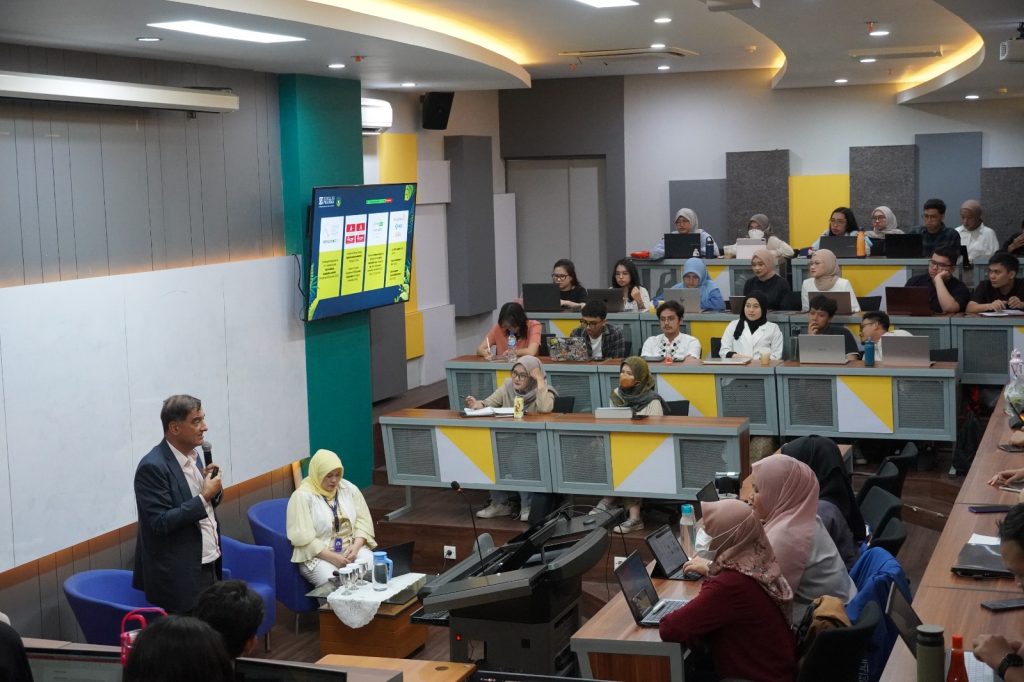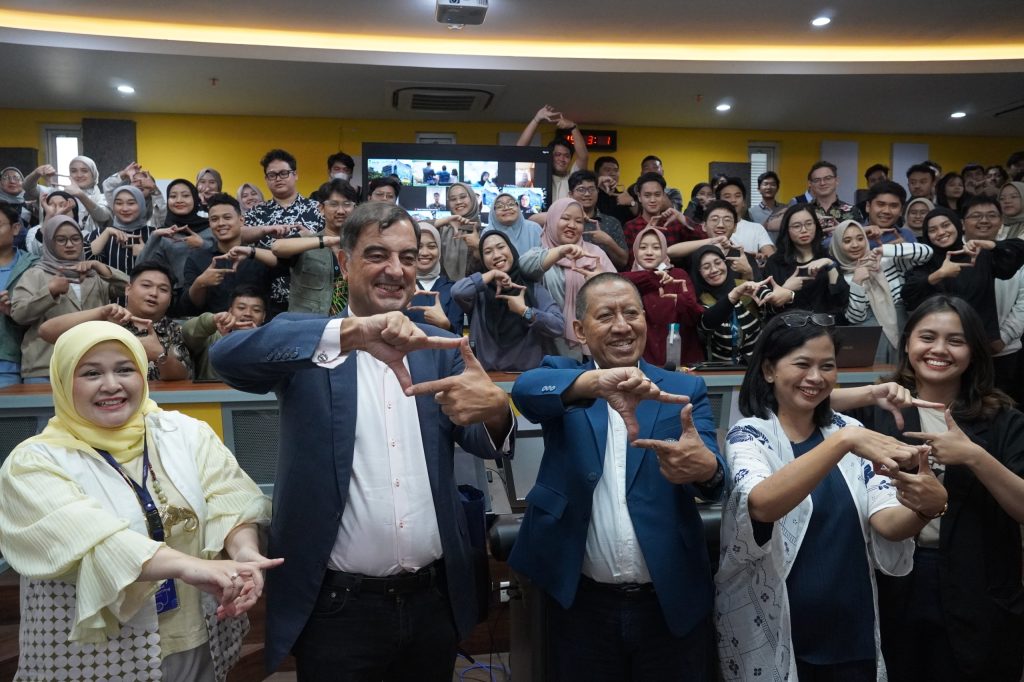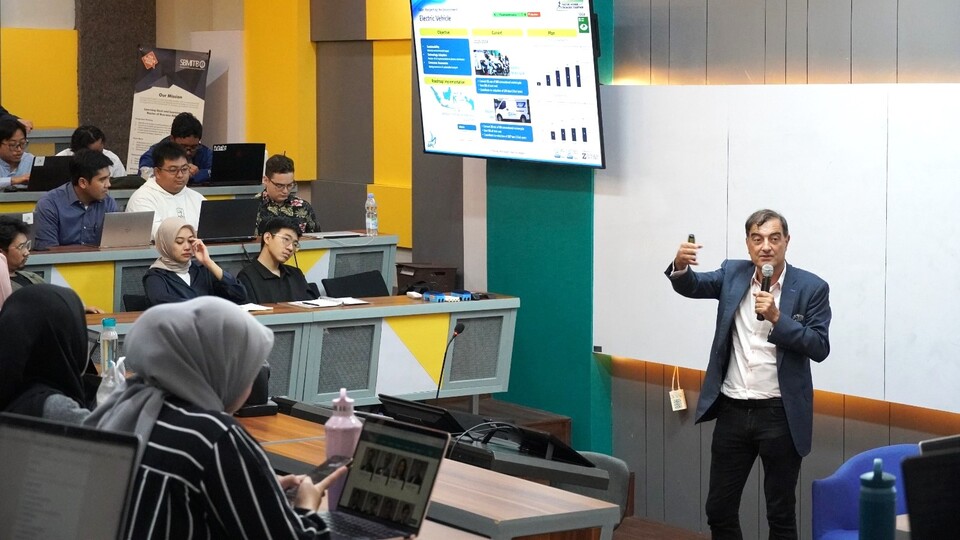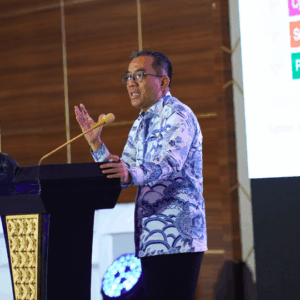Christophe Piganiol, President Director of PT Anugerah Pharmindo Lestari (APL), emphasized that sustainable business initiatives must begin on a personal level. He shared this perspective during a guest lecture on Business Ethics, Law, and Sustainability held at Amphitheater 1, ITB MBA Building, on Friday (11/10).
“Sustainability starts in our hearts, with each of us. Don’t wait for others to take the first step, even if it’s a small action, like separating organic and inorganic waste,” he stated.
Piganiol noted that many companies assume only large corporations can implement sustainability initiatives, leaving others unsure where to begin.

“Sometimes, companies feel that sustainability is just for developed countries or wealthy corporations. This misconception often causes delays in taking action,” he explained.
He went on to describe APL’s commitment to integrating sustainability into its business strategy. APL works to enhance public health outcomes, develop talent through educational programs, and demonstrate environmental responsibility by adopting solar panel technology and electric vehicles. Additionally, APL upholds high integrity standards by hosting Integrity Week and adhering to ISO 27000 standards for information security.
Jalal, Chairman of the Advisory Board of Social Investment Indonesia, further clarified the distinction between ESG (Environmental, Social, and Governance) principles and sustainability. According to Jalal, sustainability focuses on a company’s impact on the environment and society, while ESG addresses how companies manage these issues to protect financial performance. He emphasized that ESG has become an essential framework in sustainable finance, particularly in the financial sector, where it supports risk management.
Jalal also highlighted that Social Return on Investment (SROI) is the most effective tool for measuring the success of a company’s social investments. Through the principles and stages of SROI, companies can assess their positive impact on society and communities. He noted that steps such as materiality assessment, strong governance, well-defined strategies, and transparent performance measurement and reporting are essential for companies aiming to achieve comprehensive sustainability, benefiting both business and the environment.







